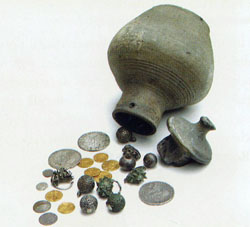Young historians to promote policies to protect archeological heritage

https://www.old.ipn.md/en/young-historians-to-promote-policies-to-protect-archeological-heritage-7967_975585.html
The National Association of Young Historians of Moldova intends to work out a national strategy and a law that would protect the cultural and historical heritage, especially the archeological one. A relevant project was launched on Friday as part of the International Museum Day.
The Association’s president Sergiu Musteata has told Info-Prim Neo that Moldova does not have such a strategy at present, only the Law on Monument Protection adopted in 1993, which is out of date. “As there is no normative framework that would regulate the national archeological patrimony, this heritage is damaged and even destroyed,” Musteata said.
Furthermore, Moldova is a party to international conventions that it pledged to implement, like the European Convention on the Protection of the Archeological Heritage. Therefore, it must improve the national legislation, the president of the National Association of Young Historians said.
According to Sergiu Musteata, many sites are irrecoverably destroyed when massive construction and industrial projects are carried out on railway or road segments. The project “Policy to Protect Moldova’s Archeological Heritage: Reality and Necessity” urges the ordinary people and the authorities to cooperate in drafting a strategy and legislation that would protect the archeological patrimony.
The project will be implemented in two stages: at the regional level and at the national level. The first stage includes the organization of three meetings to assess the real situation in the north, center and south of Moldova, discuss the problems and identify solutions to draft then strategies and laws. These will be polished at the second stage, when meetings will be held with representatives of the Government, the Presidential Office and the Parliament to create a responsible, viable and efficient institution to protect the heritage, Musteata said.
The project is implemented with support from the Swedish International Development Cooperation Agency and Soros-Moldova Foundation.
